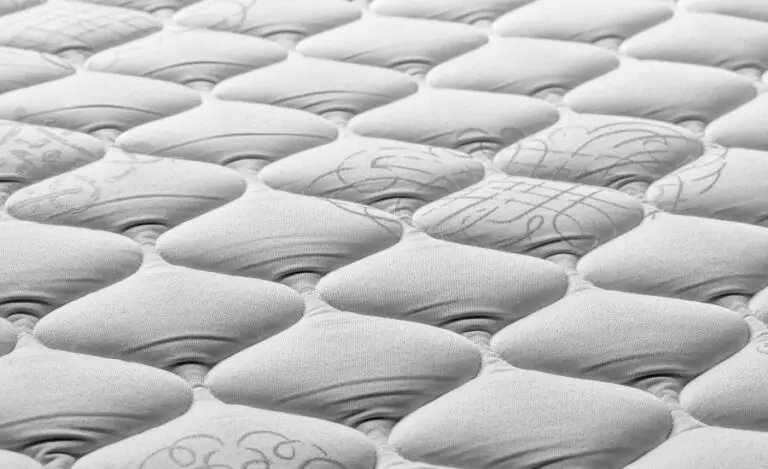How Much Does A Queen Foam Mattress Weigh?
I know many of you don’t like the same old boring setting of your room for a long time. And honestly speaking, who doesn’t like change? Just shifting a few pieces of furniture can make a huge difference.
But another fact that you can’t ignore is the weight of the furniture. Shifting such heavy furniture is a big task. The bed alone is one of the heaviest things to shift. Now, imagine getting a heavier mattress on top of that.
Ahhh…. too much weight to handle right?
It’s an absolute no-brainer that foam mattresses are heavier than innerspring mattresses. Also the size of the mattress matters! Needless to say, a king size would be generally heavier than a queen size and twin.
Now, it’s not just about the size or type of your mattress that matters. Mattresses with latex foam are also a tad bit heavier than memory foam.
So there are a bunch of factors that you have to consider before deciding the weight of the mattress. I’ll tell you further why knowing the weight of your mattress matters. So, keep scrolling….
How much can a memory foam mattress weigh?
Generally speaking, the weight of a memory foam mattress ranges from 40 to 180 pounds. The size and density of your memory foam bed are the two elements that might influence how heavy or light you can expect it to be. If you desire a certain weight for your bed, keep these two in mind.
With tht said, why does weight matter when choosing a memory foam bed? It is easy to assume that a heavier bed will support more weight. A thicker mattress is ideal for heavier people or if you share a bed-
Hold on to that thought for a moment, and consider these two factors before jumping to a conclusion-
Size
Memory foam mattresses are available in regular sizes like twin, queen, and king, just similar to other types of beds. Some brands may even provide you with smaller or oversized beds. This might entail heavier and greater weights than the previously indicated range.
So, the weight of a twin memory foam mattress might be between 40 and 60 pounds. But the weight of a queen-size bed is usually between 120 and 160 pounds.
A king bed, on the other hand, weighs between 130 and 180 pounds, making it the heaviest of the three. However, these are just general estimates.
Your bed’s overall weight will also depend on the density of the mattress core, the thickness of its memory foam layers, and the materials that make up the mattress. Expect that anything thicker will weigh more in addition to being bigger.
Density
Although the density of memory foam varies, you shouldn’t worry because it’s simple to remember what makes a product heavier. Your bed will be lighter if it is made of low-density memory foam as compared to medium- or high-density memory foam.
This is because density increases the weight and bulk of the bed.
Keep in mind that density relates to the memory foam’s cells. As a result, anything made with memory foam that weighs less than 4.0 pounds will be categorised as medium or low density.
Do I need to worry about the mattress’ weight?
For most of its lifespan, a mattress’ weight is insignificant. The two main situations in which this problem could arise are while bringing the bed into the room and when rotating or maintaining the bed. The majority of modern furniture and bed frames should have no trouble sustaining memory foam beds.
Compared to most other varieties, memory foam beds need less maintenance. It won’t ever have to be turned around. Even wear can be achieved with rotation every 6 to 12 months. This is although not necessary.
Moreover, the bulk of the weight may be balanced on the frame while you spin the bed 180 degrees if you want to do so.
So, many memory foam beds include 4-sided zipper coverings. The reason is that can be removed for washing without lifting the bed.
What could be the weight of queen-size memory foam?
If you are merely considering the typical weight range for a queen-size mattress, it falls between 120 and 160 pounds, as I’ve already mentioned This is based on a queen bed, which typically measures 60 by 80 inches. A queen-size box spring’s weight ranges from 60 to 105 pounds.
Also, do consider to account for the materials your queen-size bed and box spring are made of. These are crucial to keep in mind. Especially if you need to transport or relocate your mattress.
Please be aware that weight does not always indicate mattress quality.
You might check the mattress’s coil count, innerspring coil gauge, or foam density. Additionally, it would be preferable if you purchase a bed whose weight limit is suitable for the users.
King and California king mattresses can support up to 800 pounds, while smaller sizes have a 400-pound weight limit.
Should I get a 10 -inch or 12 -inch memory foam mattress?
The thickness of your memory foam mattress should be based on your sleeping patterns and preferences. For instance, a 12-inch model will accommodate your side sleeping posture better since it offers greater padding. In contrast, if you don’t enjoy the sinking sensation or have restricted mobility, a 10-inch mattress or something thinner is better to make getting in and out of bed more pleasant.
Also, you may find that a 12-inch mattress will meet all of your comfort, support, and durability needs. This thickness of a bed provides sufficient material to endure wear and tear without becoming completely unwieldy.
If you are looking for a little more luxury, you might want to consider a 14-inch memory foam mattress. Yes, it is possible to get a mattress with a 14-inch depth that have medium-feel mattresses or are even stiff. Beds this thick are frequently fairly soft and cushioned.
Wrap up
As I said when you are determining the overall quality of the mattress, weight does play an important role. But it most certainly isn’t the only consideration to make the most informed choice.
There are also other factors that you need to keep in mind. It could be the type of mattress, size to name a few.
Lastly, remember that your bed size as well as density will affect the weight.


